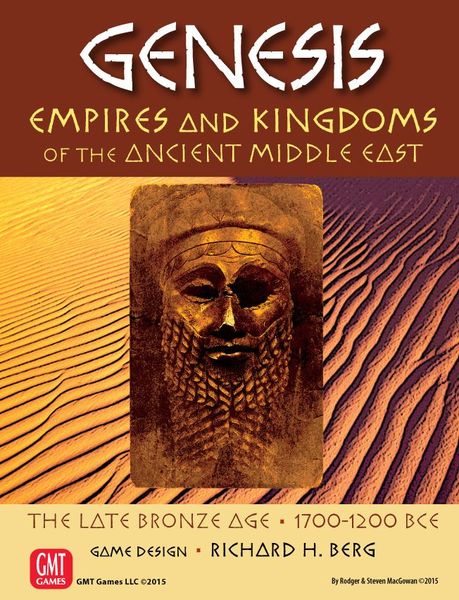Genesis: Empires and Kingdoms of the Ancient Middle East (2015) Board Game
Genesis: Empires and Kingdoms of the Ancient Middle East is a board game that takes players back to the ancient times of the Middle East. It allows players to relive the rise and fall of empires and kingdoms in the region, from the Sumerians to the Persians. The game is designed to be historically accurate, giving players a glimpse into the political and military strategies of the ancient civilizations.
Game Components of Genesis: Empires and Kingdoms of the Ancient Middle East
How To Setup Genesis: Empires and Kingdoms of the Ancient Middle East
Setting up the game involves placing the map, distributing the kingdom display cards, and assigning the respective counters and cards to each player. The game includes several scenarios, including introductory and multi-player setups, which guide players through the initial configuration. For a detailed setup, refer to the rulebook and playbook provided with the game.
Gameplay Mechanics and Game Objective
Player Experience
**Genesis** offers a rich and complex gaming experience, spanning 500 years from 1700-1200 BC. Players must balance expansion, resource management, and military conquest while dealing with the unpredictability of event cards and the actions of minor nations. The game is highly asymmetric, reflecting the historical disparities between ancient civilizations like the Assyrians, Hittites, Egyptians, Mitanni, and Babylonians. This asymmetry adds depth but also means that some players may face significantly more challenges than others.
Pros
Cons
Personal Thoughts on Genesis: Empires and Kingdoms of the Ancient Middle East
**Genesis** is ideal for experienced board game enthusiasts and those with a strong interest in ancient history. It offers a challenging and rewarding experience for players who enjoy deep strategy and historical simulations. However, it may not be the best fit for casual gamers or those looking for a quick, balanced game. The game’s complexity and historical focus make it a niche but highly engaging addition to any serious board game collection.
We are supported by our audience. When you purchase through links on our site, we may earn an affiliate commission, at no extra cost for you. Learn more.

